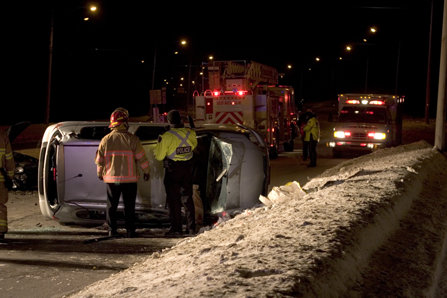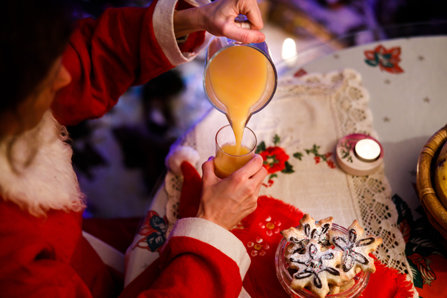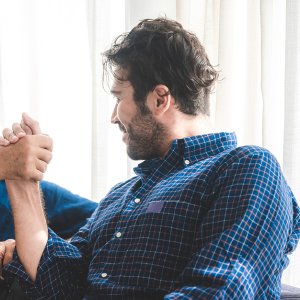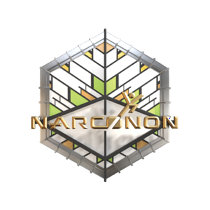Preventing Substance Abuse During the Holidays and New Year

If there’s one season that embodies warmth, heartfelt emotion, tenderness, kindness, and benevolence, it’s the Christmas and New Year season, the holidays. This is the time of year when the best of human connection comes forth, when families gather, relatives fly across-country to see each other, and loved ones create cherished memories while enjoying each other’s company.
Sadly, people who currently struggle with drug and alcohol addiction and those in recovery from drug and alcohol addiction often have limited, painful, or simply nonexistent relationships with their family members. Or they may have toxic, manipulated relationships with them. When that is the case, the holidays can be a harsh reminder of that fact. That’s why, as pleasant as this time of year is for so many, the holidays create an increased risk for those in recovery and for those who are addicted to drugs and alcohol.
Do the Holidays Bring Additional Risk for Substance Abuse?
The holidays are right around the corner, often a stressful moment for recovering addicts. But it’s not just those in recovery who are at risk. Anyone who uses mind-altering substances is at risk. In fact, even those who are around people who are using mind-altering substances are at risk. Some statistics to consider include:

- Almost every year, there are more fatal car crashes involving alcohol during the holiday season than during other months of the year. Holiday weekends, in particular, show a higher rate of alcohol-inhibited traffic fatalities than other weekends. Holidays, including three-day weekends during the spring, summer, and fall, report about 33% of fatal car crashes occurring on those weekends as being alcohol-related. In contrast, non-holiday weekends report 25% of fatal crashes as being alcohol-related. Perhaps most concerning, the fatal alcohol-related crashes occurring in the Christmas/New Year season are increasing year-over-year.
- But it’s not just drunk driving that soars during the holidays. Drug overdoses are also more likely to occur during this time of year, a trend that spills over into the entire winter season. A combination of cold weather, isolation, additional obstacles in seeking treatment, and holiday emotions all exacerbate conditions for addicts during this time.
- Several risk factors make conditions more dangerous for people who struggle with addiction, people who are in recovery, and at-risk individuals during the holidays. These include potentially tense family gatherings (and conversely) the potential for holiday isolation, disruption in one’s healthy routine, increased exposure/access to alcohol, and being more likely to be around people who are using substances.
- The holidays are known for being a period when substance abuse spikes. This is because consumption of mind-altering substances goes up for all demographics, not just those addicted to drugs and alcohol. From Christmas work parties to New Years’ Eve celebrations, from once-per-year large family gatherings to taking time off for a holiday trip, substance abuse, particularly alcohol abuse, is simply more likely to occur during this time of the year.
Given that risk factors increase during this season, people who want to have safe, sober, and substance-free holiday experiences need to take extra steps to protect their sobriety.
How to Avoid Relapse During the Holidays
For recovering addicts and people who don’t want to use drugs and alcohol, the holiday season is a period that can easily test one’s resolve. Following are several tips for saying no to drugs and alcohol this holiday season:
- Start each day with a plan. Whether one is a recovering addict or someone who has never struggled with addiction but who doesn’t want to drink this year, starting each day with a plan not to drink or use drugs is key. Slip-ups and relapses occur when one is thrown off guard or when one is not operating on a daily plan of not using substances.
- Carefully evaluate the long-term implications of each situation. When tempted, one should evaluate what will happen later on down the line if they do use drugs or drink. For a non-addict who wants to avoid substances this holiday season, the consequences if they fail to avoid substances could be hangovers and weight gain. For a recovering addict, using substances during the holidays could mean a full-on relapse back into addiction.

- Bring a non-alcoholic beverage. People who want to avoid alcohol during the holidays should bring their own beverages with them. That way, they are always sure to have a non-alcoholic option.
- Carefully isolate, recognize, and guard against triggers. Whether someone is in recovery or not, one should be able to recognize the things about alcohol or other mind-altering substances that make one want to use them. Maybe it’s the environment or setting, perhaps it’s the buzz or high, or maybe it’s the social lubricant that such substances seem to create. One should understand what these triggers are and be on the lookout for them.
- Get plenty of rest and eat well. Substance abuse is more likely to occur when someone is tired, hungry, and not entirely themselves. People who want to stay sober through the holidays should ensure they are well-fed, well-rested, alert, and aware of themselves and their surroundings.
- Analyze what about the holidays causes stress, and isolate/address those factors. Some people use substances during the holidays because some aspect of the holidays causes stress. Identifying these sources of stress and reducing the stress associated with that source can help reduce the risk for substance abuse.
- Recruit an “accountabilibuddy.” Two heads are better than one, and it can help to have someone else who is also tackling the holidays from a position of sobriety.
- Have a backup plan. One should always have a backup plan in case a situation arises in which one feels pressured to drink or use drugs. A backup plan can be something as simple as, “I have to leave now because I promised _____ I’d be home by a certain time.”
- Bring other people into the commitment. In addition to having a sober buddy, one should also tell others in their peer group that they plan to have a sober holiday. This way, other family members and loved ones can act as a support group.

Words of Encouragement for Recovering Addicts and Treatment for Those Who Need It
The holidays can be a heartfelt, rewarding time, or the holidays can be difficult and stressful. How one approaches this season makes all the difference.
“… for the relatives and friends of someone who may have a substance use disorder, my message is reach out to them, keep an eye on them, because even if you do it virtually, that human contact is invaluable. Reach out to them and give them that support that they need.”
For those in recovery, it’s important to enjoy the holidays, but to approach this season with some caution, with a plan in place. From Dr. Nora Volkow, Director of the National Institute on Drug Abuse, ”For those that are struggling with substance use disorders, who are in recovery, be very aware that these are periods of great risk. Because one of the factors that leads to drug-taking and to escalation of drug-taking, and to relapse, is stress.” She also said that, “And for the relatives and friends of someone who may have a substance use disorder, my message is reach out to them, keep an eye on them, because even if you do it virtually, that human contact is invaluable. Reach out to them and give them that support that they need.”
The holidays should be a time of love, appreciation, benevolence, and thankfulness. But the holidays should also be a time of mutual support, compassion, and solidarity. For those in recovery, this is a time to remind themselves of their commitment to sobriety. It’s a time to take additional precautions to prevent a potentially stressful or risky environment or situation. Protecting one’s sobriety needs to be the top priority.
And for those who are currently struggling with drug and alcohol addiction, the holidays can increase risk and potentially cause one to use more substances, more often, and in a more risky manner. But at the same time, the holidays bring families together. This season can be the perfect moment to stage an intervention and convince a loved one to get help. If you or someone you care about is using drugs and alcohol and cannot stop, use this moment to seek help at a qualified drug treatment center. Don’t wait until after the holidays to take action. Please seek help today.
Sources:
- https://stokesstemle.com/holiday-drinking-and-driving/
- https://www.brown.edu/news/2019-06-17/cold-overdoses
- https://www.drugabuse.gov/videos/coping-substance-use-disorder-during-holidays


